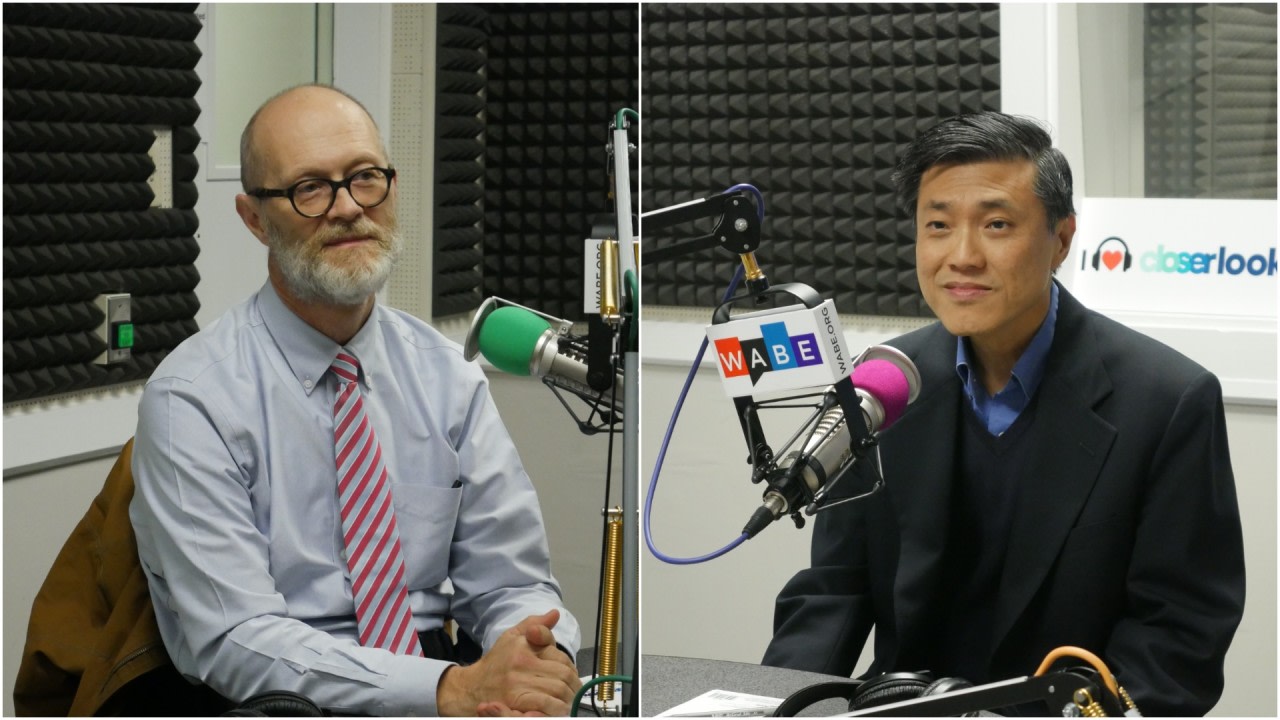From public transit to micromobility, a look at Atlanta’s transit landscape

Georgia State University Professor Joseph Hacker and Kennesaw State University Professor Bill Diong join “Closer Look” to give us the latest on global, national and regional transit trends.
Grace Walker / WABE
Traffic delays cost the average American 97 hours, or about $1,300, a year, according to INRIX, a company that analyzes transportation. In 2018 the company published a worldwide Traffic Scorecard showing their calculations for how much time the average commuter loses annually due to traffic congestion.
So what can be done to address Atlanta’s traffic and congestion issues? That’s one of the questions we put to local experts as “Closer Look” kicked off its weeklong series, “Gridlocked: What’s Moving Atlanta?”
Joseph Hacker, Professor in the Department of Public Management and Policy at Georgia State, and Bill Diong, associate Professor of Electrical Engineering at Kennesaw State University, stopped by “Closer Look” to talk about the transit outlook for the Atlanta region.
On bus rapid transit
“What I’ve been focusing on for the last couple of years is the concept of semiautonomous, electric buses, specifically with modules, to be used for bus rapid transit lines,” Diong said. “I see that as a stepping stone towards fully autonomous buses in the future.”
Light rail on the BeltLine
“I don’t agree with that at all,” Hacker said. “Why not put 5,000 or 10,000 scooters, and let everyone have their own personal mobility — they can get on and off wherever they want. It requires no public capital investment. It’s run privately, and the market takes care of it. That’s kind of an out there solution, but we could have it now. Why wait 30 years?”
“Whenever you have something that has to follow a track, you’re limited in terms of flexibility,” Diong said. “That’s why using buses, for example, has more flexibility — if something isn’t working, change the route, but with something that requires tracks once you have the track, you’ve got to stick with that.”
On workforce housing
“Atlanta can really bend the trend on a lot of these traffic issues if they provide the housing for all people so they can live closer to where they work,” Hacker said.








